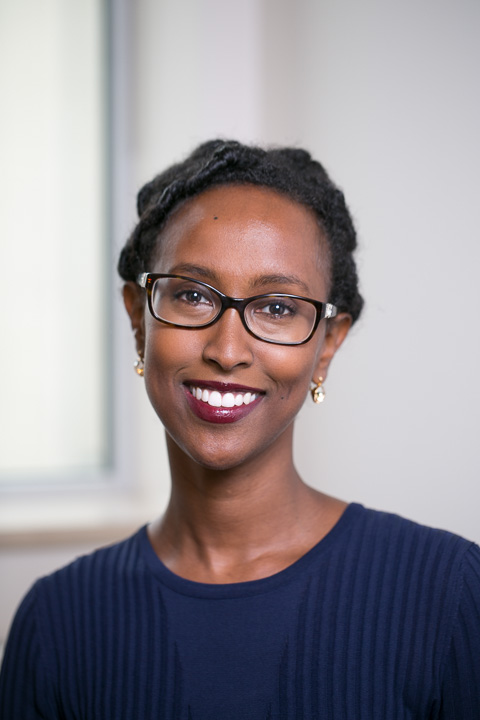Dr. Habon Samater
Role at the CentreHome-care doctor Year started at the Centre2016 Shares a practice with
| Dr. Habon Samater has been working at the Latner Centre since July 2016, and it’s everything she expected it to be, and more. “It’s wonderful. You always go in with a certain impression of what the job will be like. I had some experience in palliative care during my residency here. I worked with Dr. Narges Khoshnood whom I’m job sharing with now. I feel I’ve come full circle: I started out learning about palliative care with her and now I’m working with her. The reality has exceeded my expectations. It’s more than a job. The personal level of interaction you get with patients is unparalleled, something I truly enjoy about the job. She admits that initially she didn’t think of palliative care as something she’d be interested in. “When I was in medical school, a mentor mentioned it in passing as something to consider as a complement to Family Medicine. I didn’t think too much about it because my perception of palliative care was that it was focused on end-of-life care and the issues of death and dying. To someone who doesn’t have a lot of experience with that can be a little bit daunting and fraught with challenges.” But the mentor’s suggestion had clearly taken root, because when she was in residency she decided to explore palliative care. “I thought why not see what it’s about? I set up the elective here at the Latner Centre. Home care was something I didn’t have very much experience in. But it turned out that it was a natural fit for me. My values and interests in medicine and my vision for the practice of medicine aligned really well with palliative care. But also the challenges and the unique perspective of working in the home setting, and interacting with patients and families on that level was something that was quite unique and meaningful to me. I feel like I made the right decision for myself.” The intimacy of her relationship with her patients has surprised her. “That’s something I didn’t truly appreciate before I got into this field. It’s the level of trust that you develop and the fact that people are opening themselves up to you and allow you to be involved in their life when things are at their most vulnerable. It’s quite a privilege, and quite unique. That aspect of it is lost on people who aren’t in the field.” Indeed, she feels other branches of medicine have much to learn from palliative care. “Learning about who the person is and what’s important to them and what their goals are what their values are is something that is not at the forefront in other medical fields. Medicine can be quite formulaic, quite regimented and there are clear guidelines. With palliative care you can have five different people with the same disease and have the same problem and have five different outcomes in terms of how they would like to be treated. That’s my number one guiding principle: we give you the options, we discuss things and help you figure out what would be best for you and what you’d be most comfortable with.” Of course, the flip side of the intimacy with her patients is the emotional challenges posed by the job. I wondered how she copes with that. “I spend time with people that love and support me but with whom I can do things that are far removed from palliative care. I like to view myself as a multi-dimensional person not just a physician, not just a palliative care physician. I was Habon before medicine and after I retire I’ll be Habon after medicine, so I try to remind myself what’s important to me. Travel for example is a good way to explore and experience new cultures. Part of the reason I really enjoy palliative care is I get to be a bit curious, I get to learn about people. I like learning about people’s stories, who they were before their illness. It’s such an interesting and unique opportunity to be able to connect with people one-on-one. It’s similar with travelling, you get to immerse yourself in different cultures, you get to see how other people live and how other people approach challenges." |





